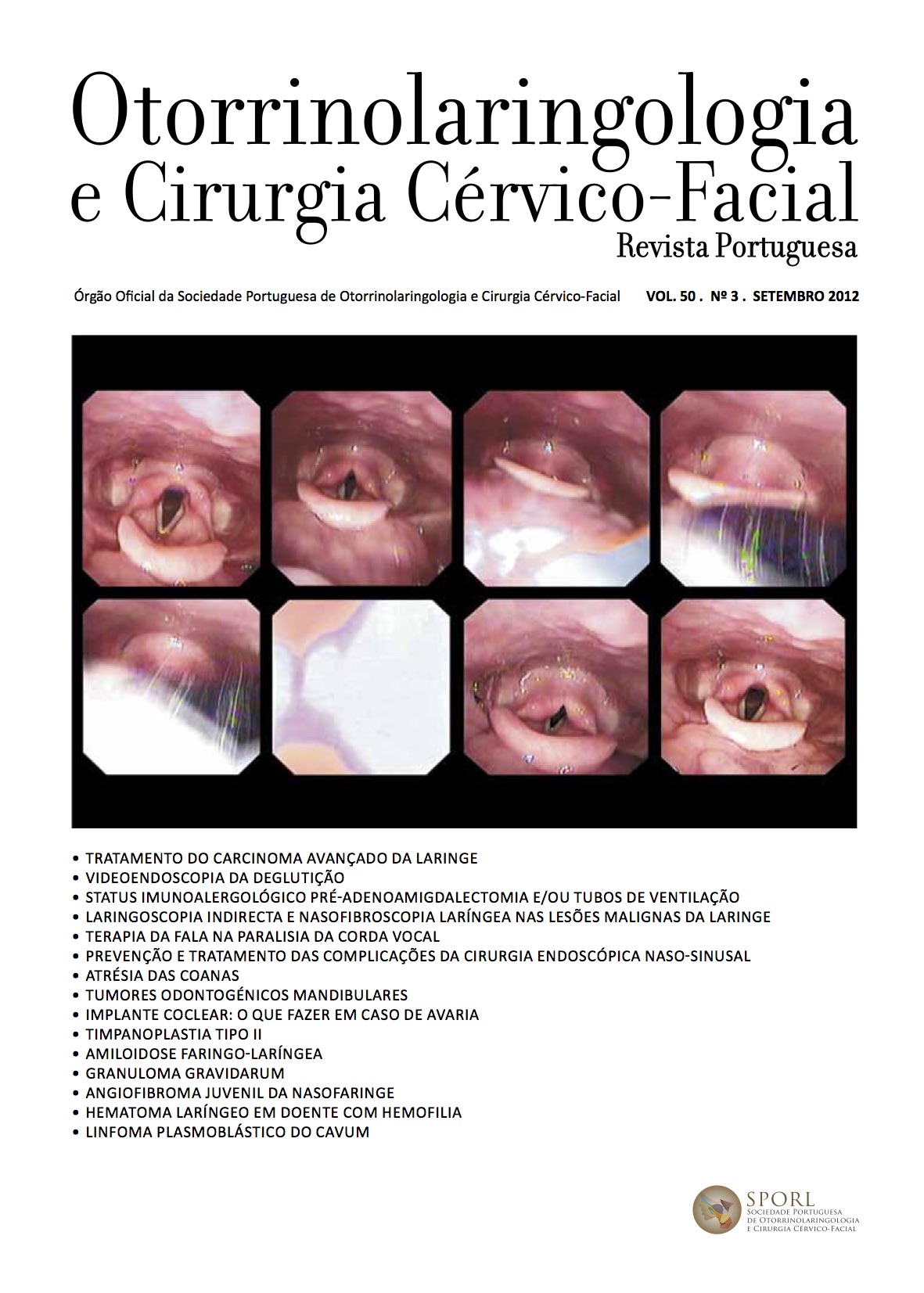Cochlear implant: How to manage a failure?
DOI:
https://doi.org/10.34631/sporl.119Keywords:
cochlear implant, failure, reimplantationAbstract
Introduction: Cochlear implants have proved their clinical efficacy and have overcome a routine treatment for profound sensorineural impairment. More than thirty years pass since the first cochlear implant was used. These years, and the increasing number of implanted devices, have shown however some limitations and technical failures. These electronic device failures are unpredictable and sometimes difficult to diagnose.
Description of two cases: The authors present two cases to illustrate failures of the intracochlear device. Both cases required a cochlear reimplantation surgery.
Discussion and conclusion: There are multiple causes for intracochlear device’s failure. Management of implant failures, including revision surgeries, is becoming an increasingly important part of cochlear implant program activity.
Downloads
References
Battmer R D, Gnadeberg D, Lehnhardt E, Lenarz T. An integrity test battery for the Nucleus Mini 22 Cochlear Implant System. Eur Arch Otorhinolaryngol. 1994; 251: 205-209.
Weise J B, Muller-Deile J, Brademann G, Meyer J E et al. Impact to the head increases cochlear implant reimplantation rate in children. Auris Nasus Larynx. 2005; 32: 339–343.
Cohen N L, Hoffman R A, Stroschein M. Medical and surgical complications related to the Nucleus multichannel cochlear implant. Ann Otol Rhinol Laryngol Suppl. 1988; 135: 8-13.
Chong-Sun Kim, Sun O Chang, Seung-Ha O H, Hyo Jeong Lee. Complications in cochlear implantation. International Congress Series. 2004; 1273: 145– 148.
Nichani J R, Broomfield S J, Saeed S R. Displacement of the magnet of a cochlear implant receiver stimulator package following minor head trauma. Cochlear Implants International, 2004; 5(3): 105–111.
Migirov L, Taitelbaum-Swead R, Hildesheimer M, Kronenberg J. Revision surgeries in cochlear implant patients: a review of 45 cases. Eur Arch Otorhinolaryngol. 2007; 264: 3–77.
Rodriguez M J M, Irujo A H. Implantes Cocleares. Masson. 2002.
Luetje C M, Jackson K. Cochlear implants in children: What constitutes a complication? Otolaryngol Head Neck Surg. 1997; 117:243-247.
European Consensus Statement on Cochlear Implant Failures and Explantations. 2005. www.mhh-hno.de/download/european.pdf.
Cervera-Paz FJ, Manrique M, Huarte A, García FJ, García-Tapia R. Study of surgical complications and technical failures (correction of technical defects) of cochlear implants. Acta Otorrinolaringol Esp. 1999; 50 (7): 519-524.
Côté M, Ferron P, Bergeron F, Bussières R. Cochlear reimplantation: causes of failure, outcomes, and audiologic performance. Laryngoscope. 2007; 117 (7):1225-1235.
Sorrentino T, Coté M, Eter E, Laborde M L, et al. Cochlear reimplantations: technical and surgical failures. Acta Otolaryngol. 2009; 129 (4): 380-384.
Gosepath J, Lippert K, Keilmann A, Mann W J. Analysis of fifty-six cochlear implant device failures. ORL J Otorhinolaryngol Relat Spec. 2009; 71(3):142-147.






